The Sacerdos is not only initiated in the service to Nabia and Ataegina, but also to the service to the Good Folk of the Iberian Peninsula, the Faery practice.
We communicate with the Fae and serve as a medium of communication between them and our world. As devotees of the Liminal, we respect the veil to the Other World and all the beings that pass through it. It is our mission to identify them and work with them. Here we leave our vision of the iberian Good Folk and their relation to the Iseum.
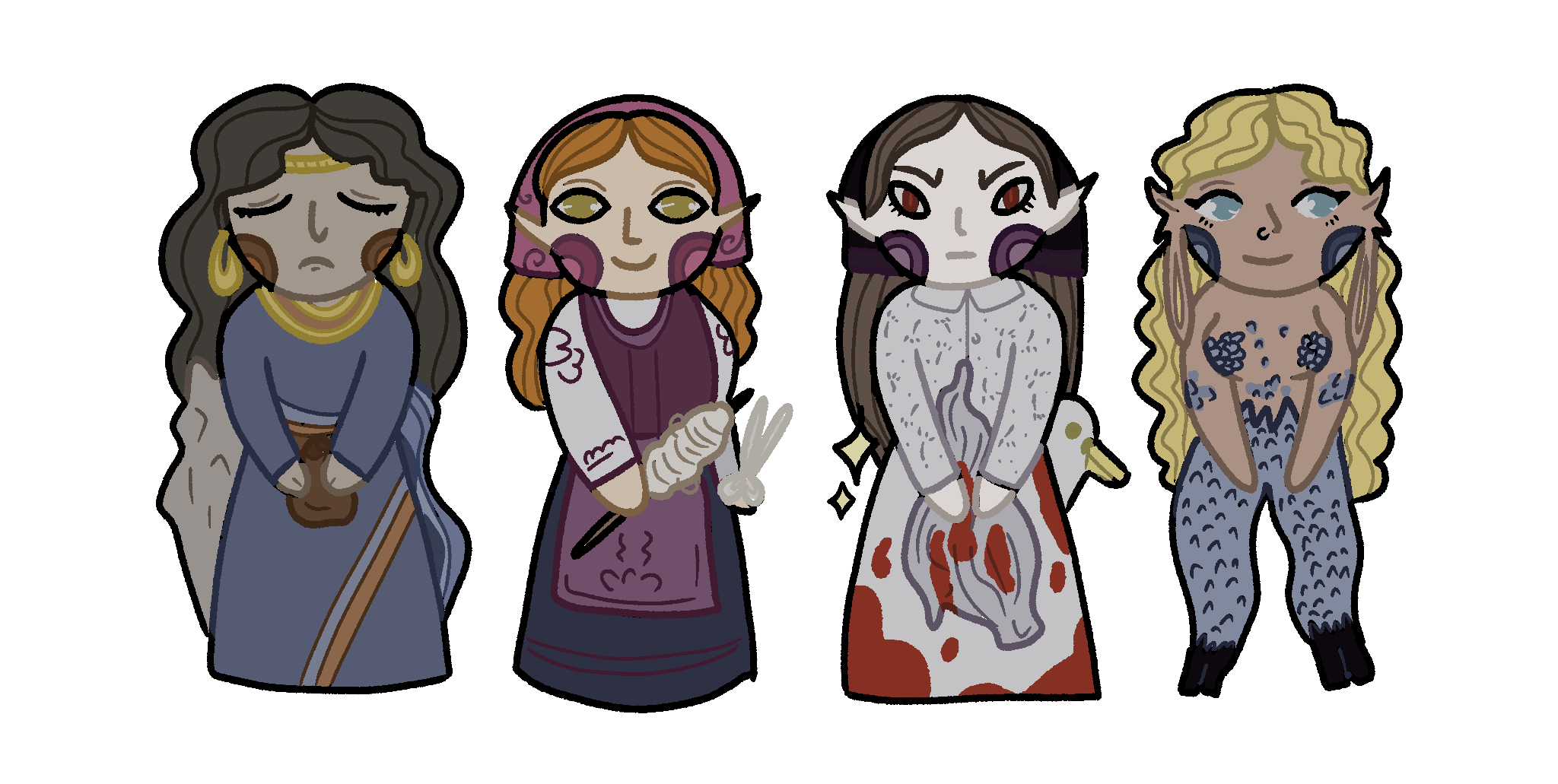
Nymphs
We consider Nymphs all Good Folk with associations to the water. We see these Fae as children of Nabia, created and protected by her. The words Moiras, Janas or Bruxas can also be utilized as synonim for Nymphs or Fae, but here we separate these beings under different characteristics. They are typically feminine, and bring with them stories of both love and pain.
Enchanted Moiras: Feminine figures that die in a way that is unjust, frequently with a love or friendship lost, that are allowed to remain in this world bound to a stone or fountain. They can be freed and have a distinct beauty and scream.
Janas, or Weaving Moiras: Fae of destiny and the home. They are as mysterious as they are smart, appearing in homes, rivers and creeks. If they are offered bread/cake, milk and honey, they may give back a fabric weaved by them, blessing the destiny of the person that keeps it.
Bruxas, or Washer Moiras: Old folk that appear in fountains and creeks, covered in blood and sorrounded by lights. They beat their clothes on stones, and can ask whoever sees them to help wash them. They may take form of white ducks or geese.
Marinhas: Feminine fae with fish legs, goat feet and loose earlobes. They are mute, being able to occasionally scream in a terrifying way. They may live among humans if kidnapped, but never too long.
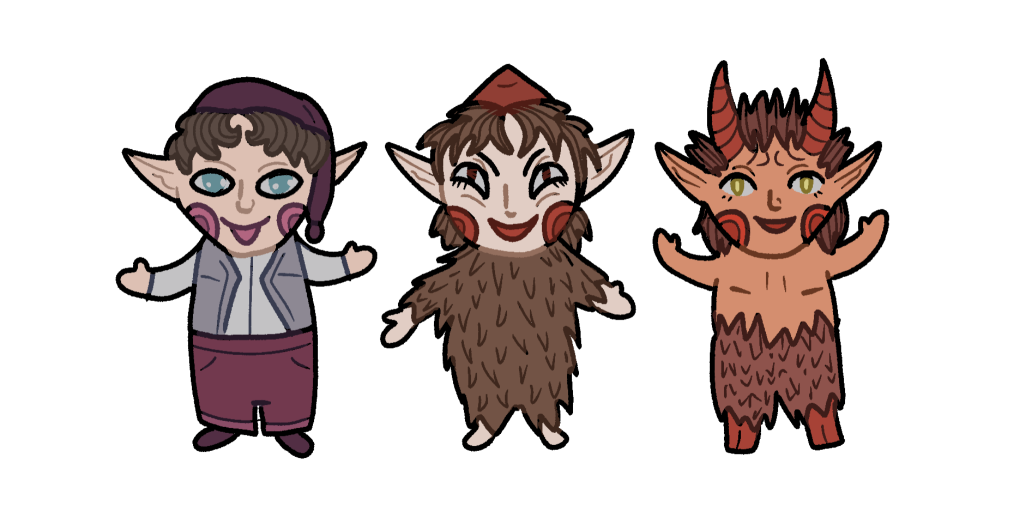
Tricksters
By a lack of a better word, we consider Good Folk tricksters if they are of small stature, frequently found in the home and compared to children in folk stories. These fae are likely to play tricks, some more harmless, some more dangerous - but are also the most open to mutual understanding and communication, and a contract is possible with these Good Folk.
Duendes: Beings of the home that can bring chaos - breaking plates, knots in hair, stealing objects - just as help those who share their home - wash dishes, find money, sew buttons. They are the Fae easiest to find and the most easy to make a contract with.
Trasgos: They can do everything a Duende can, but much more likely to be destructive. They can cause dizzyness and amplify the evil-eye, as well a be sent to another person to annoy them. They can be offered bread, cake or beer to be pacified. They wear a red beanie.
Diabretes/Mafarricos: Translated to "little devils" or "imps", these tricksters cannoth be pacified, always seeking chaos and destruction around them. They can be used to annoy someone else, just like Trasgos, but never give any domestic help. They are considered a tiny version of the Christian Devil.
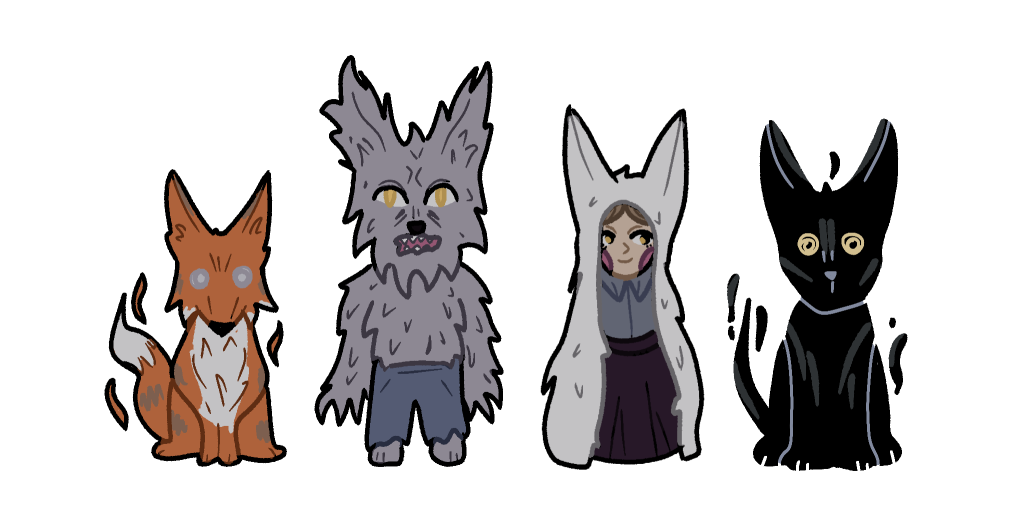
Canidae
Although they are most generally called bad omens, we place these Good Folk in their own section due to being wolves or dogs, with stories more common and expansive through the Iberian Península than others. These beings don't start out as Good Folk, but become such through curses or fadário (destiny). They are not good, nor bad, acting only according to animal instict.
Zorras: creepy foxes that scream at night, foretelling a nearby death. They can be found in woods, crossroads or at the roadside.
Werewolves: masculine cursed figures - many because of their acts of infidelity or bad manners. They have to run like crazy every night, and act like animals - wash themselves poorly, eat and talk with their mouth full, don't respect people around them, get into unnecessary fights. They can be freed from their curse depending on its origin.
Peeira de Lobos: Translated to "Wolf Guide", a Fae that controls canidae Good Folk, taking care of them and communicating with them. As animal folk have no capacity for comunication, their Peeira must be called for any understanding. Can also take form of a kind wolf and heal any ailment.
Corrilários: the soul of a dog or werewolf that died in a violent or unjust way. Has the fadário of running between this and the Other World, and takes the shape of a large black dog. Sometimes it can have human arms and hands.
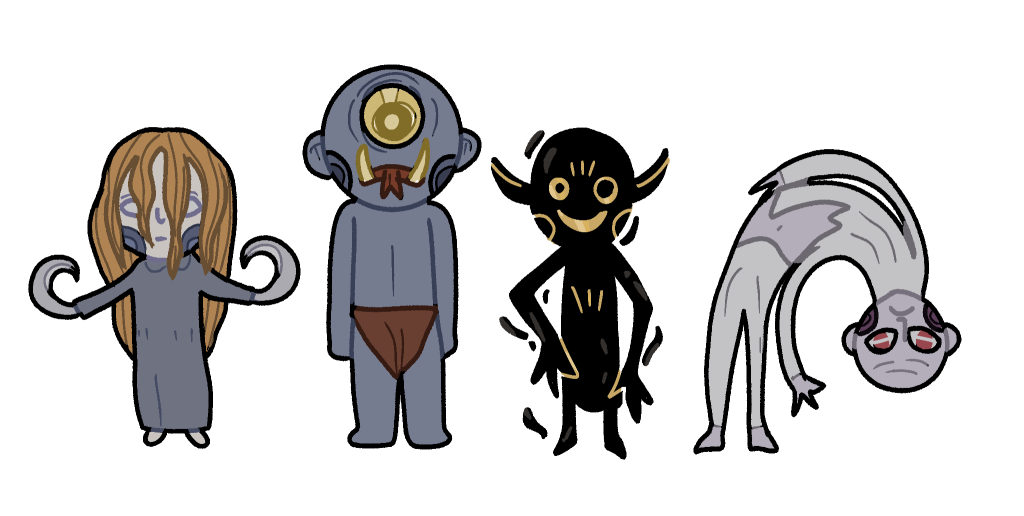
Almas Penadas
Translated to "Lost Souls", these are the Good Folk you do not want to meet in a cold night. They send shivers through your neck and bring only disaster with them. Altough they are bad omens, that does not mean you cannot commmunicate - but almost always, the best strategy is to ignore or banish them. They must be sent back to Ataegina's domain, to the Other World where they reside and belong.
Maria Gancha: feminine soul trapped in a well with hooks for hands. Drags inside whoever comes near.
Olharapos: Giants with only one eye, capable of acts of brutal violence.
Puca: Soul that takes form of black animals with bright yellow eyes. It is death incarnate in the form of a fae.
Aventesmas: Lost souls that can bend their bodies, found at crossroads. If they do an arch with their body, you must throw a shoe over that arch.
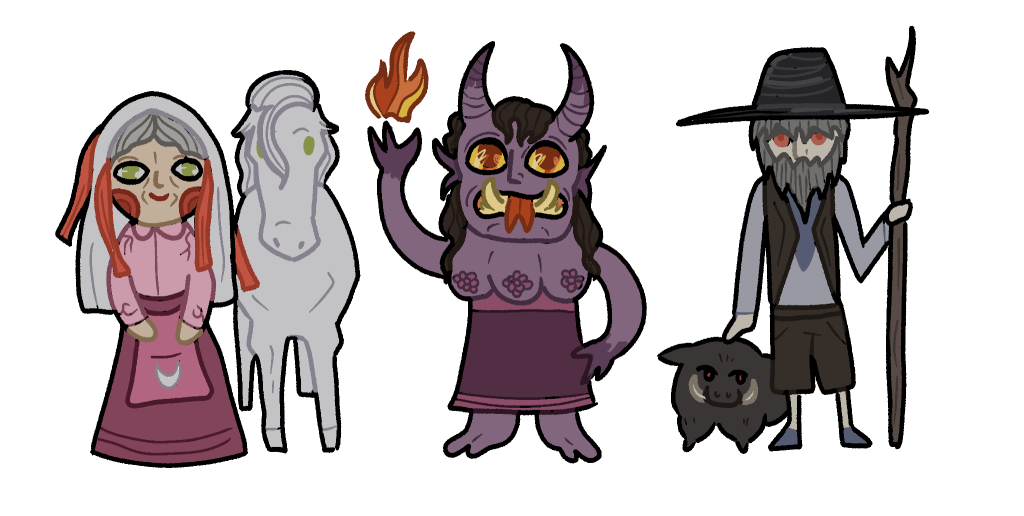
Entities
These are Good Folk that probably have origin in the Divine or are direct representatives of Them. They are more powerful fae that the one's written before, and we can consider them possible Fae Royalty. If seen, they must be respected from afar.
Velha da Égua Branca: Translated to "Old Lady of the White Mare", a wise witch that protects the Algarve in full moon nights. She wears a white veil with red ribbons and rides a beautiful white mare. She is the only one that keeps the Homem do Chapéu de Ferro at bay. Possibly Icona.
Maria da Manta: A beast with horns and fire that appears in rivers, lakes and wells. It seeks isolation, since in drowns any who come near. Possibly Bandua.
Homem do Chapéu de Ferro: Translated to "Man of The Iron Hat", a creepy man that appears under olive trees, fig trees or on the side of the road. He has for company a blac pig, or great deer, or a rooster, all of the animals very noisy. He canalizes thunder with his large iron hat, and brings destruction and death to who stresses his animals. Fears the Velha da Égua Branca. Possibly Reve or Quangeio.
